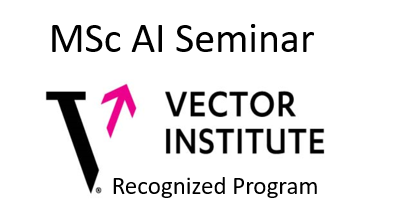Monday, May 8, 2023 - 11:00 to 12:00
SCHOOL OF COMPUTER SCIENCE
The School of Computer Science is pleased to present…
MSc Thesis Proposal by: Sonaila Hussain
Date: Monday May 8th, 2023
Time: 11:00 am – 12:00 pm
Location: Essex Hall, Room 122
Reminders: 1. Two-part attendance mandatory (sign-in sheet, QR Code) 2. Arrive 5-10 minutes prior to event starting - LATECOMERS WILL NOT BE ADMITTED. Note that due to demand, if the room has reached capacity, even if you are "early" admission is not guaranteed. 3. Please be respectful of the presenter by NOT knocking on the door for admittance once the door has been closed whether the presentation has begun or not (If the room is at capacity, overflow is not permitted (ie. sitting on floors) as this is a violation of the Fire Safety code). 4. Be respectful of the decision of the advisor/host of the event if you are not given admittance. The School of Computer Science has numerous events occurring soon
Abstract:
Workers in industries such as manufacturing, assembly, and construction often engage in repetitive and various motions, such as lifting heavy objects or performing the same task for a long period of time. Because such activities can increase the risk of various muscular disorders, it is important to help workers choose the best postures when performing their activities. Ergonomics is an important field that aims at designing tools and work environments that promote workers safety and health. Video-based Human Activity Recognition together with Rapid Upper Limb Assessment (RULA) method can be used to assess ergonomic risks for workers, by evaluating the physical stresses imposed to the body during work activities.
In this presentation, we propose a deep learning approach for task recognition and RULA score calculation. Our approach uses a revised version of Long-Term Recurrent Convolutional Networks model to classify work activities based on input videos. Then, a separate neural network is employed to estimate the RULA scores for each input activity. We train and evaluate our approach using a dataset of annotated work activities. Our results show that our approach achieves competitive accuracy for task recognition and RULA score estimation, demonstrating the potential of using deep learning for improving ergonomic assessments in the workplace.
Keywords: Deep learning, RULA, LRCN, Ergonomic tools
MSc Thesis Committee:
Internal Reader: Dr. Imran Ahmad
External Reader: Dr. Eunsik Kim
Advisor: Dr. Boubakeur Boufama
MSc Thesis Proposal Announcement 
5113 Lambton Tower 401 Sunset Ave. Windsor ON, N9B 3P4 (519) 253-3000 Ext. 3716 csgradinfo@uwindsor.ca
